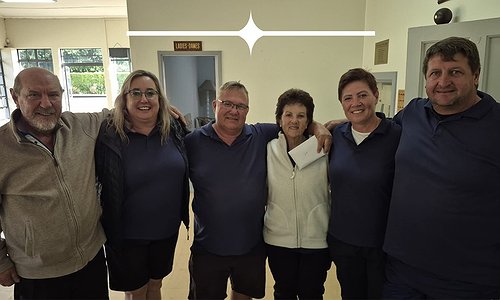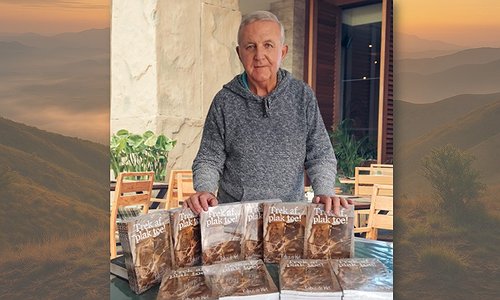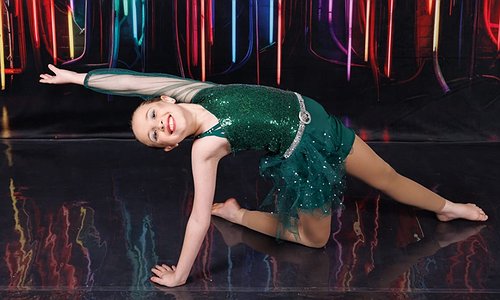How art, activism, and kindness left its mark from Barberton to Plett
Ronél’s first stop in Barberton was with Sophie Jardin, where she spent more than a year volunteering her time to care for children who had been abandoned, many of whom were living with HIV and AIDS. She drove them to school, collected food donations from Pick n Pay and the Eureka Centre, and helped however she could. “That’s how it all started,” she recalled. “I was just always helping wherever I could.”
Her old tjor became a canvas much later – a personal reward for her own quiet bravery. After endless trips along Barberton’s dusty farm roads fetching children and collecting donations, the car was worn and in need of care. Since she wasn’t earning a salary and lived off donations alongside Sophie Jardin, she eventually found the courage to ask Sophie to help cover the cost of a much-needed service. Once the car was repaired, she decided to celebrate the moment. “It felt like a big thing, just being able to ask,” she said. “So I painted the car – ants, flowers, butterflies – everything colourful. It was my way of saying well done to myself.” Sitting proudly on the dashboard was a little bobblehead toy dog named Peanut, nodding along every step of the way.
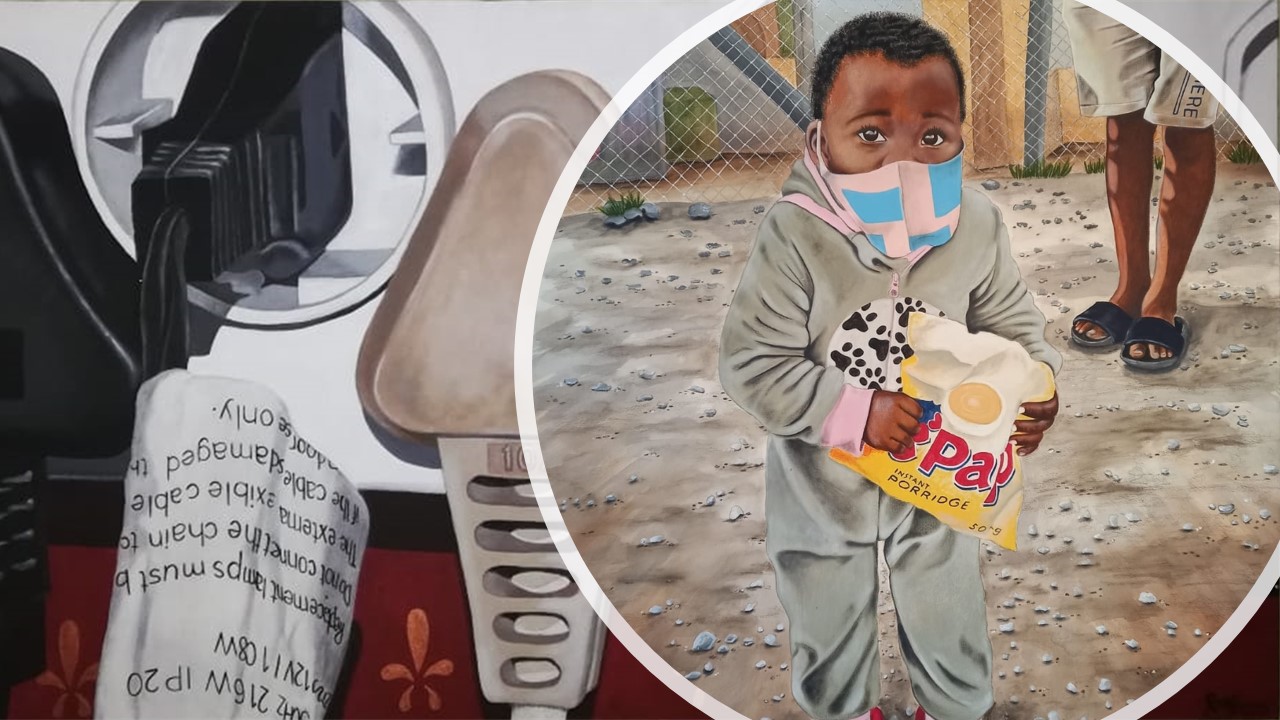
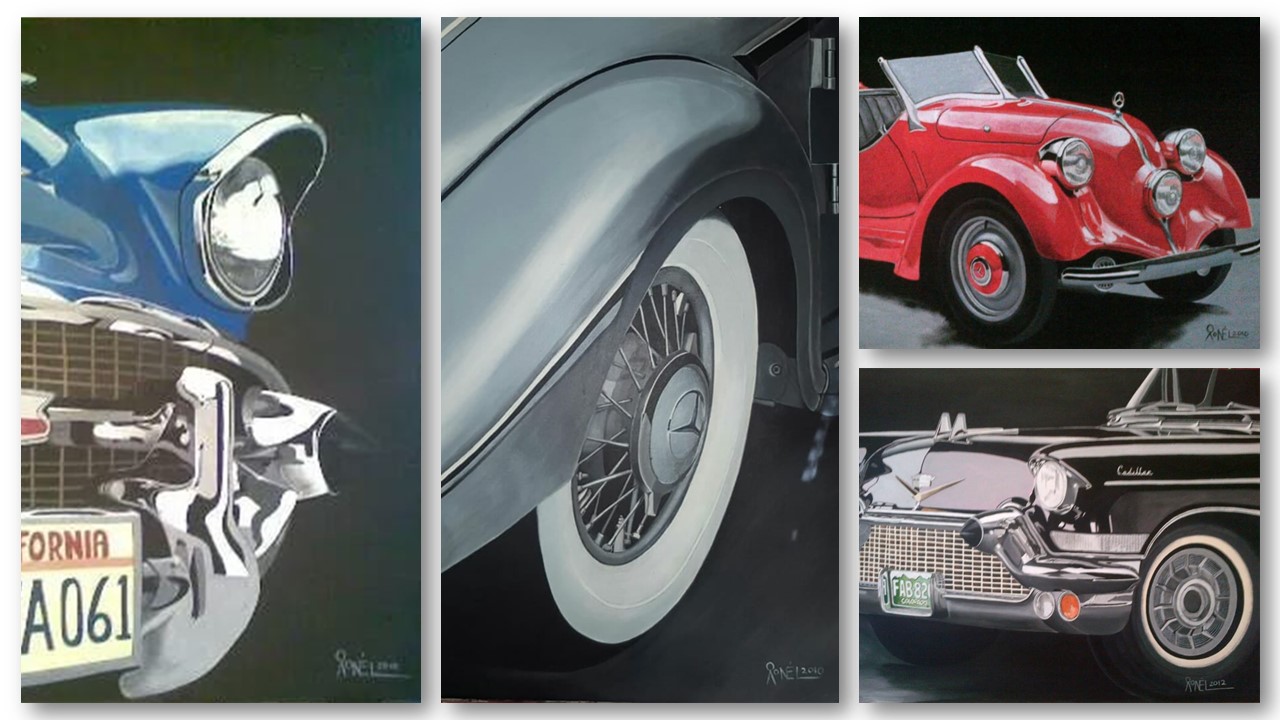
Her art followed close behind. Barberton soon became her canvas, from the murals at Josephine’s to bright walls at nursery schools and private homes. Her creativity became part of the town’s character, a reflection of her own warmth and vibrance.
She met her husband, Sol Reinecke, by chance one evening at a band practice at the home of Lawrence and Elsabé Reyneke. At the time, Sol was a student and musician, visiting Barberton while playing gigs in the area. “Three months later, we were married,” she said, smiling at the memory. Their daughter Jada was born in Barberton in 2004, cementing her roots even further into the valley. Today, Sol works as a Quality Control manager in the Civil Engineering and Architectural field.
Ronél's connection to Barberton deepened when she was approached by the late John Clarke. Through the introduction of Astrid Christianson, known locally as Assie, he asked if she would be interested in painting the rock entrances to the town in the style of the late Nukain Mabuza, whose painted stone garden can still be found at Revolver Creek. “Of course I said yes,” she said. She studied Mabuza’s use of colour, which was often sourced from leftover and discarded paints donated by locals. In that spirit, Ronél developed her own specific colour formula and designed the murals using a layout similar to a colour-by-number. A team of ten people helped her bring the vision to life, one brushstroke at a time. Today, those rocks still greet visitors entering Barberton, a visual tribute to heritage, creativity and community.
She was also invited to portray Cockney Liz during Barberton’s Night at the Museum events, an opportunity offered to her more than once by Tony and Sandy Ferrer. “Eventually I said yes. Barberton had its own heartbeat. It was easy to feel part of it.”
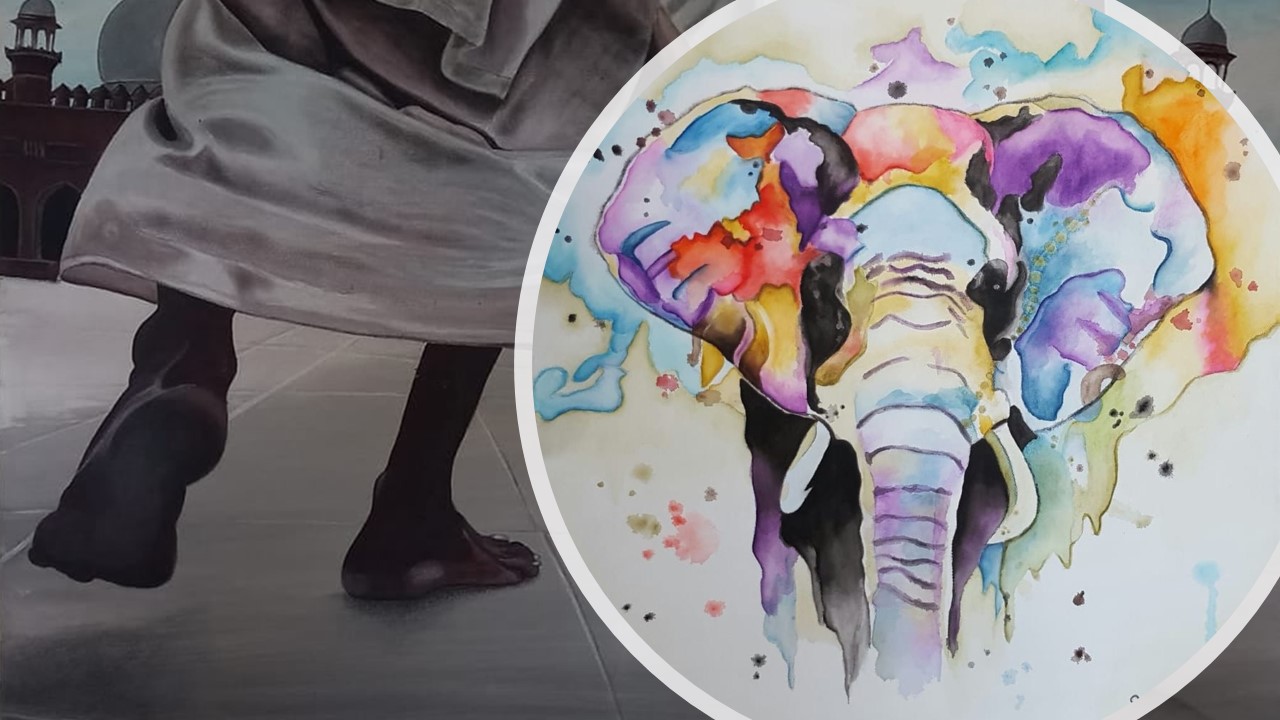
After nearly two decades in the town, Ronél and Sol moved to Plettenberg Bay in 2019. It was a new chapter but came with challenges. “We arrived just before lockdown. I didn’t know anyone, and no one knew me. It was a very strange time,” she said. True to form, she adapted and became active once again in both community work and art.
In Plettenberg Bay, she joined Muddy Pooches, a nonprofit initiative that works with children in under-resourced areas to teach compassion and responsibility toward animals. “We help feed kids, sterilise pets, and teach them the basics of looking after animals. It’s about doing what’s right.”
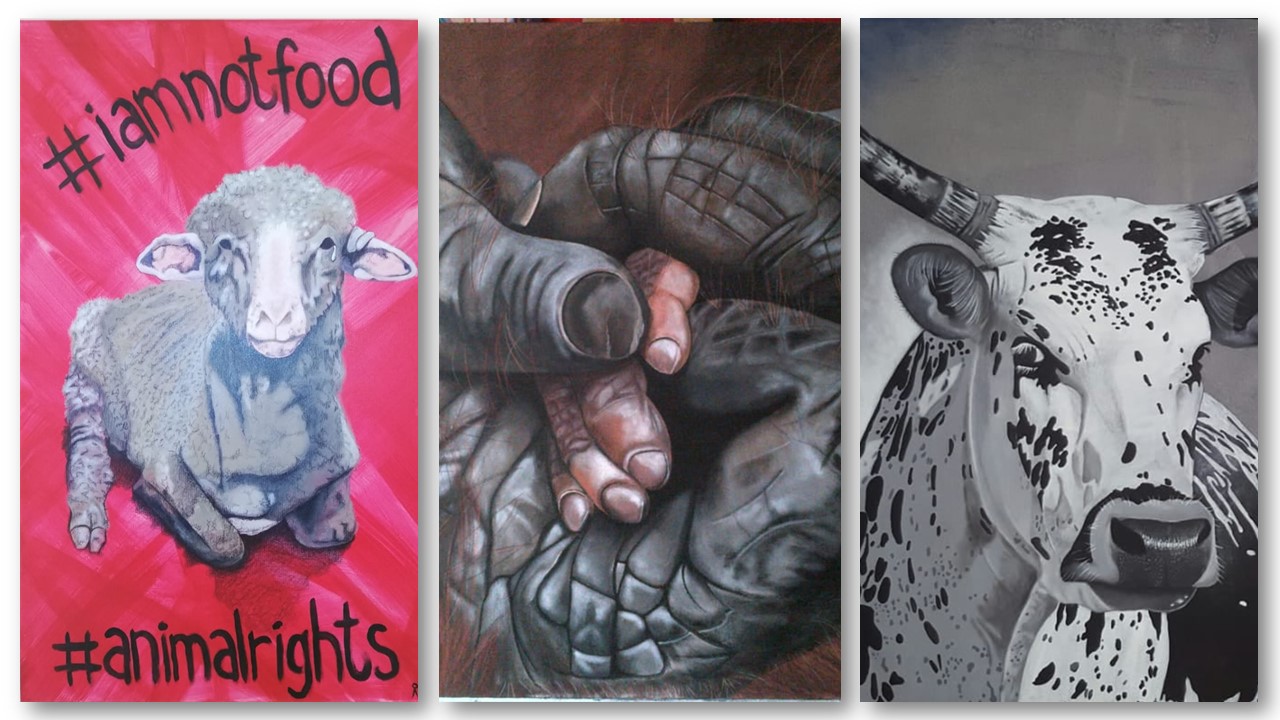
As reported by Anchen Coetzee for our mother publication Africa In Touch News, Ronél also became involved in environmental activism, attending four protests in opposition to seismic blasting along the Garden Route coastline. She stood alongside the Plett Environment Forum and local residents in their campaign to halt the practice, voicing her concern in line with many others who believed the ocean deserved protection. Ronél was among those who stood firmly behind the Plett Environment Forum’s campaign to stop the practice, voicing her concern in line with many others who believed the ocean deserved protection.
“Animals should have equal rights to what we do. I believe in helping those who can’t help themselves. I just want peace.”
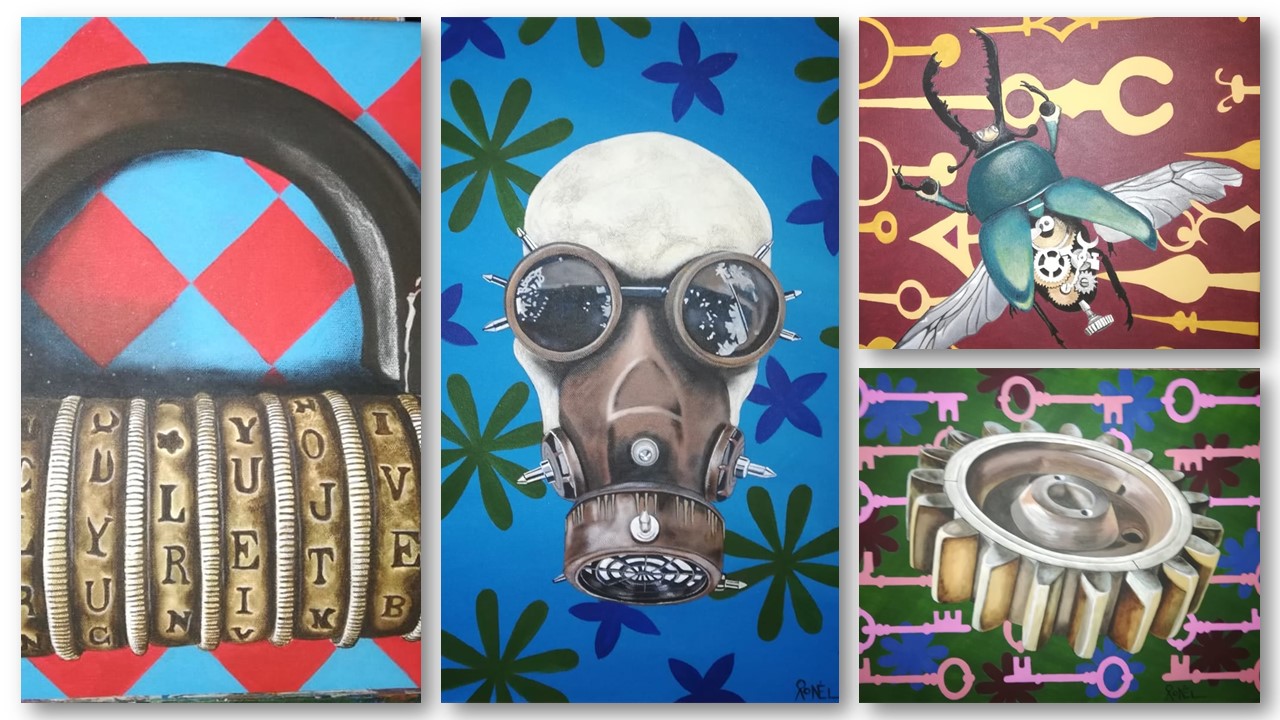
Today, she continues to paint and also upcycles furniture. Her work is featured at Mulberry Boutique in Plettenberg Bay and is available online. Her style remains instinctive, emotional and fiercely true to herself – and colourful – always full of abundant colour.
When asked what life taught her, she did not hesitate. “The positive about getting older is that I don’t really care what anyone thinks anymore. I’ve learnt what’s important and what’s not. Don’t waste time on the small stuff. Just be who you are. Unapologetically. The right people and beings will find you.”
Her work can be viewed on Facebook at Ronél’s Art in Colour.



